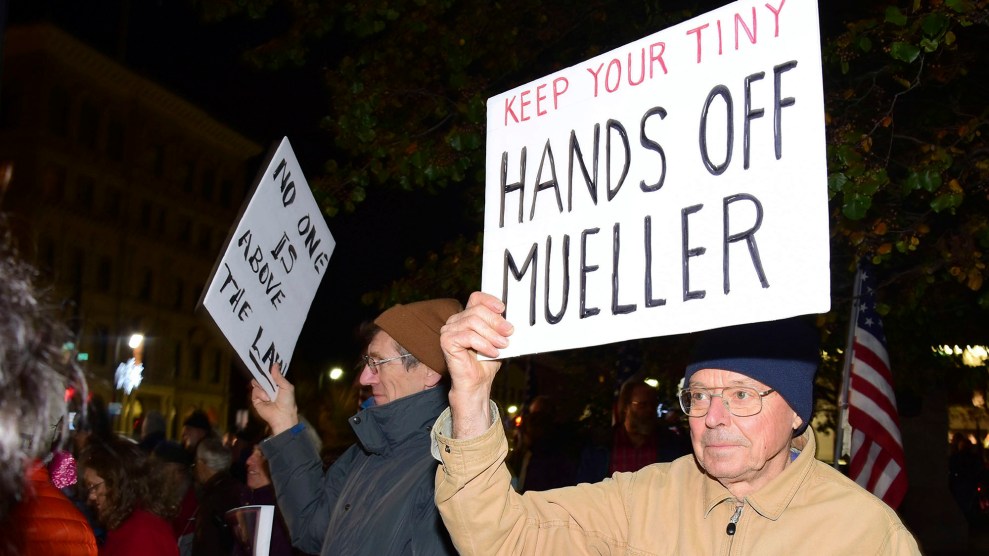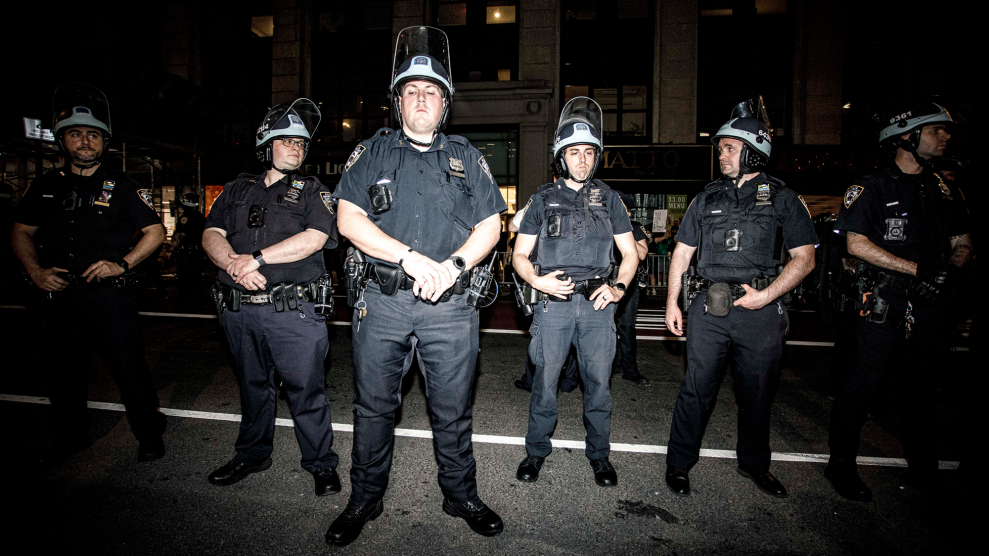
People rally to protect special counsel Robert Mueller's investigation in the wake of Attorney General Jeff Sessions' resignation.Gillian Jones/The Berkshire Eagle/AP
William Barr, President Donald Trump’s pick for attorney general, has expressed sympathy for Trump’s critiques of special counsel Robert Mueller’s investigation, which Barr would oversee if confirmed.
Trump announced his selection of Barr on Friday. If Barr is confirmed as attorney general, this would not be his first time overseeing Mueller. Barr previously served as attorney general under President George H.W. Bush, from 1991 to 1993, when Mueller led the department’s criminal division. But this time his oversight of Mueller, who pursued major criminal prosecutions under Barr’s watch, could be very different. Barr is known as a strong advocate of presidential power and has expressed skepticism of the Russia probe Mueller is leading.
One of the first and continuing ways Trump and his allies at Fox News sought to discredit Mueller’s investigation was to claim he was leading a band of Democratic prosecutors out to get the president. As Mueller built up his team in summer 2017, the Washington Post reported that seven of the 15 prosecutors Mueller had brought on had donated to Democratic candidates. “In my view, prosecutors who make political contributions are identifying fairly strongly with a political party,” Barr told the paper. “I would have liked to see him have more balance on this group.” (Mueller himself is a Republican and was named special counsel by Deputy Attorney General Rod Rosenstein, a Republican and Trump appointee.)
As Mueller’s investigation has continued, Trump has repeatedly called instead for investigations into Hillary Clinton and former FBI Director James Comey, among others, raising the possibility that the president could weaponize the Justice Department against political opponents and perceived enemies. In November 2017, Barr said there was no problem with the president urging investigations into Clinton. “There is nothing inherently wrong about a president calling for an investigation,” Barr told the New York Times. “Although an investigation shouldn’t be launched just because a president wants it, the ultimate question is whether the matter warrants investigation.”
In the same interview with the Times, Barr expressed skepticism of collusion between Trump’s campaign and Russia. He agreed with Trump that the Justice Department should instead be investigating the Uranium One scandal—a debunked conspiracy alleging that Clinton sold a uranium company to the Russians in exchange for donations to her family charity. As the Times reported, “Mr. Barr said he sees more basis for investigating the uranium deal than any supposed collusion between Mr. Trump and Russia. ‘To the extent it is not pursuing these matters, the department is abdicating its responsibility,’ he said.”
These comments are likely to come up at Barr’s Senate confirmation hearing and could raise questions about his impartiality in overseeing the Russia investigation. It’s not surprising Trump would select an attorney general who is sympathetic to his views on Mueller’s investigation, which represents an existential threat to his presidency. Trump’s first attorney general, Jeff Sessions, destroyed his relationship with Trump and ultimately lost his job because he failed to protect Trump from the investigation by recusing himself. Barr, if confirmed, would be under immense pressure from the president not to recuse himself.


















